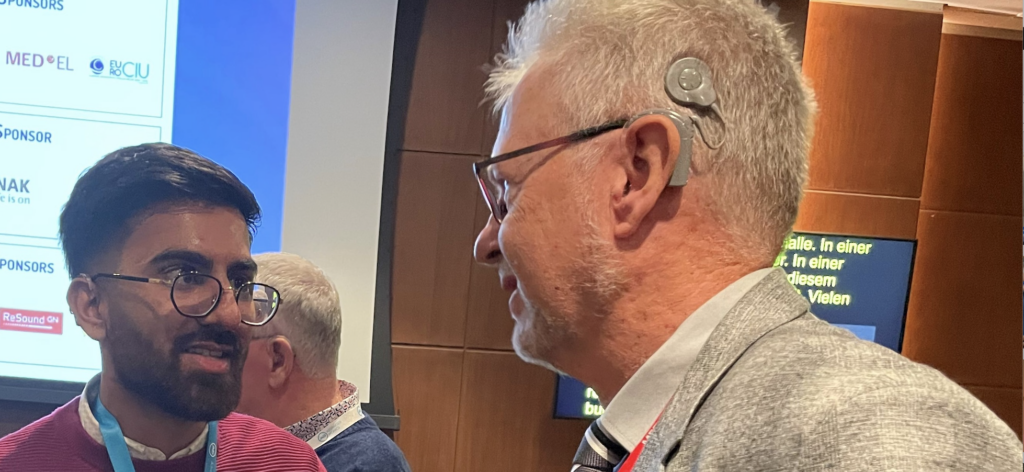
First-ever global survey done in partnership with professor Connie Mayer from the Faculty of Education at York University's Deaf and Hard of Hearing Teacher Education program
A global survey put out by York University’s Faculty of Education and the Cochlear Implant International Community of Action (CIICA), a user advocacy organization, shows that most deaf and deafened adults who have cochlear implants are satisfied with them, but significantly more follow-up and lifelong supports are needed.
“If we are to make the most of this amazing development in global hearing health, we need also to ensure that the one million cochlear implant (CI) users around the world are fully supported in the long term — and it is not only those with deep pockets who can afford to have this life enhancing support,” says Professor Connie Mayer, who has been working in deaf education for nearly 40 years and is the academic coordinator for the Deaf and Hard of Hearing Teacher Education Program at York University.
Cochlear implantation requires surgery to implant a receiver in the inner ear, and the fitting of an external processor to enable the user to hear. Profoundly deaf users found that the implants transformed their abilities to hear and communicate in everyday life. As one user commented, “Going back to listening is priceless – my life has been completely changed for the better.”
The resulting report, which will be presented at an online webinar Nov. 20 by Mayer and collaborators from CIICA, indicates that 96 per cent of CI users expressed overall satisfaction with their implants and although the same number says they were satisfied with the services they received, the survey also revealed where services were lacking.
The report found that users often struggled to get appropriate support and rehabilitation after surgery as they learned to use their implant, with more than a quarter receiving no rehabilitation support and nearly a third feeling they did not have enough support. Users are reliant on their CI for everyday communication and required lifelong technical support for the external parts of the device: “I need services so that my CI will work and be supported right up to the day I die.”
Significant numbers reported issues with follow-up support, mostly related to lack of funding. “Users need support for rehab and ongoing management of the technology including processor upgrades and spare parts such as cables and cords. So if there’s no funding for that follow-up, that’s a big problem,” says Mayer.
The report’s authors call for significant changes in the way CI services are provided by health systems to ensure that these deaf and hard of hearing adults can retain their independence and that health and social care systems save on the increased burdens that would otherwise result.
“This survey gives us a picture of the life-changing impact of this technology from the perspective of the users themselves – a message that needs to heard.”
The Deaf and Hard of Hearing Teacher Education Program at York University has been around for 30 years and is the only one of its kind in Ontario and one of only a few in Canada. It provides training and accreditation to qualified teachers who are looking to work with deaf and hard of hearing students.

